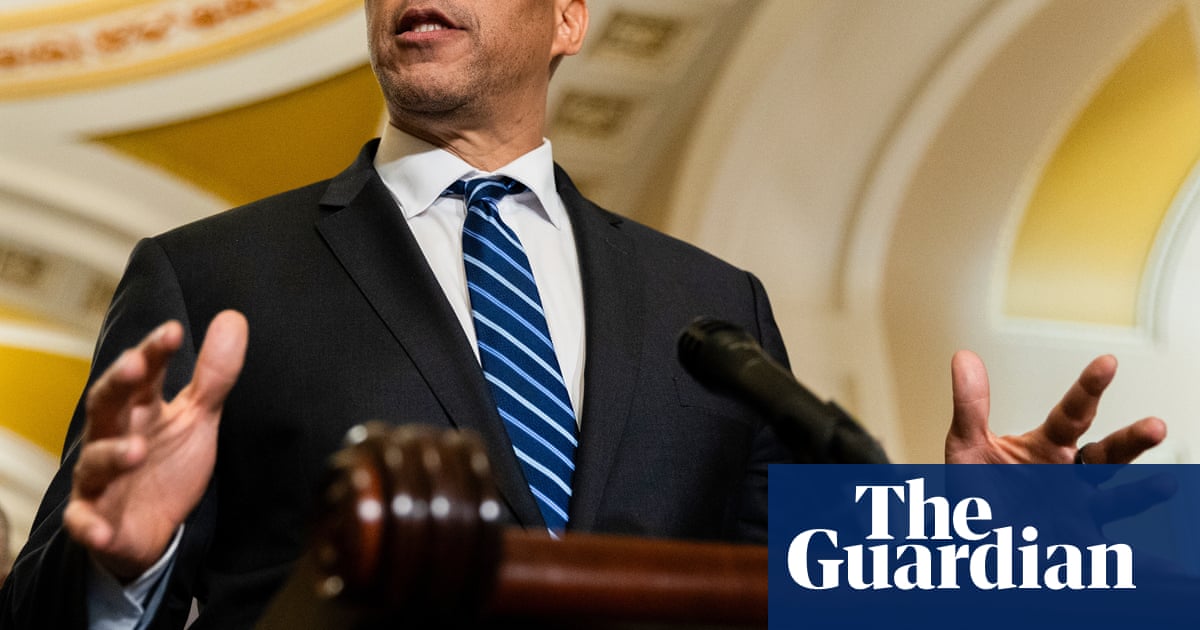Inside the Adelanto ICE Processing Center
“¡Nos tratan como perros!
¡Nos tratan como perros en jaulas!”
People being held at the Adelanto ICE Processing Center (“Adelanto”) shouted in Spanish about being treated like dogs in cages as Disability Rights California (“DRC”) conducted a monitoring visit on June 25, 2025. DRC monitored Adelanto after receiving alarming reports that the U.S. Department of Homeland Security’s (“DHS”) Immigration and Customs Enforcement (“ICE”) was holding people with disabilities in unsafe and unsanitary conditions at Adelanto. ICE confines non-citizens at Adelanto, which is an immigration detention center in San Bernardino County, California. The facility is owned and operated by the GEO Group, Inc., a private company that ICE contracts with to provide custody services.
Disability Rights California is the designated protection and advocacy system for people with disabilities in the state. DRC is charged under federal and state laws with protecting and advocating for the rights of people with disabilities, including through the monitoring of facilities that provide care and treatment to such individuals.1
During the monitoring visit, DRC investigated the reports it received and sought to determine whether ICE and GEO Group are subjecting people with disabilities to abuse and neglect.2 DRC toured various areas of the Adelanto facility, including those used for intake, housing, segregation, medical and mental health care, recreation, and visitation. DRC also spoke with GEO Group representatives, ICE officials, and Adelanto staff, and interviewed 18 individuals detained at Adelanto.
Based on the conditions DRC observed, its interviews with detention center leadership and individuals held at Adelanto, and reviews of related information, DRC finds that ICE and GEO Group are subjecting people with disabilities to abuse and neglect. As detailed below, the conditions that DRC observed and the reports it received are alarming. DRC urges DHS, ICE, and the GEO Group to immediately address these issues and prevent further abuse and neglect of people with disabilities by ensuring:
- Access to appropriate medical and mental health care;
- Access to processes that properly address disability-related needs;
- Access to basic needs, including adequate food, water, and clothing; and
- Access to family and natural supports to prevent decompensation.
Disability Rights California protects and advocates for the rights of all people with disabilities in the State of California, regardless of their ethnicity, cultural background, language, or immigration status.
Many people migrating to the United States are forced to leave their countries due to political instability, dangerous conditions, or persecution. Many are seeking asylum. They exhibit high instances of trauma and present numerous mental health needs. Immigration detention facilities are generally ill-equipped, and are not the least restrictive setting to meet the medical, mental health, and other needs of adults and children with disabilities.
Disability Rights California has long fought for the de-institutionalization of people with disabilities and for their right to live and receive services in the community. Immigrants with disabilities deserve this same treatment.
Background
The reports DRC recently received about the conditions at Adelanto are similar to conditions DRC observed during its prior investigation of Adelanto in 2019.3 In 2019, DRC published a report that detailed serious issues with the conditions in which people with disabilities were held and the poor treatment to which they were subjected—ultimately finding that conditions at Adelanto resulted in the abuse and neglect of people with disabilities. As part of the June 25, 2025 visit, DRC also sought to determine whether conditions have changed since 2019.
During DRC’s recent monitoring visit, ICE and GEO Group held nearly 1,400 people at Adelanto—a dramatic increase from the approximately 300 individuals it held there just weeks before.4 Due to the surging numbers of people at Adelanto, conditions appear to have quickly deteriorated.
Overall, DRC found serious issues including: (1) inadequate access to medical treatment, such as life-saving medication and wound care, and exposure to widespread respiratory illnesses; (2) inadequate access to food and water, including extreme delays in meal distribution, provision of food that results in significant health issues, and a shortage of drinking water; (3) inadequate access to clean clothes, with many remaining in soiled clothing for long periods of time; and (4) minimal opportunities to contact family. Further intensifying these issues, many of the people DRC interviewed had never experienced incarceration and felt overwhelmed and terrified by their confinement in a locked, jail-like facility.5
Findings
1. Inadequate Access to Medical and Mental Health Care and Disability Accommodations
During the monitoring visit, DRC observed and noted serious issues concerning inadequate access to medical and mental health care and failure to properly address disability-related accommodations.6 These issues appear to be ongoing, in part due to Adelanto staff difficulties in identifying and addressing the health care needs of detained individuals, particularly those with disabilities.7 These issues are compounded by the fact that many individuals detained at Adelanto have never been confined and do not know how to navigate the jail-like systems at Adelanto.
DRC met with many individuals during the monitoring visit who were not receiving proper medication to manage their medical conditions.8 One person reported that he needed to take diabetes medication twice per day but had only received it twice over the 10 days he had been detained—placing him at life-threatening risk of diabetic shock. Other individuals reported insufficient access to medication to manage severe asthma and urinary conditions or not having medications transferred from previous facilities to ensure continued treatment.9
One person reported that he needed to take diabetes medication twice per day but had only received it twice over the 10 days he had been detained—placing him at life-threatening risk of diabetic shock.
DRC also spoke with several individuals who reported inadequate medical treatment.10 DRC interviewed one person who had a large, swollen, untreated lump near her wrist, reportedly sustained when she was taken into ICE custody 17 days prior. DRC interviewed another individual using a prosthetic eye who was unable to clean the prosthesis to prevent infection. Although both individuals requested medical attention, neither received a response as of DRC’s visit.11 In addition, several individuals informed DRC that they did not understand how to make requests for medical care or declined to do so because Adelanto staff failed to respond.
Individuals also reported contagious respiratory viruses quickly spreading due to the increased crowding at Adelanto. People consistently expressed concern that they received limited treatment, if any, to ease their symptoms. DRC also observed staff not wearing masks to prevent the spread of respiratory illnesses. These reports and observations are especially concerning given Adelanto’s prior record of inadequate COVID-19 policies and practices, which led to a 2020 court order limiting the number of individuals who could be held at Adelanto.12
DRC also interviewed several individuals who reported experiencing mental health symptoms but not receiving mental health care.13 One individual, for example, described struggling with anxiety and panic attacks due to past traumatic events, including sexual assault and torture, that took place in his country of origin. He feared that he would be imprisoned and tortured again if he returned. Although he sought help from Adelanto staff for his mental health symptoms, he reported that he had not been evaluated yet despite being held in detention for over three weeks. Other people DRC interviewed also reported difficulty obtaining access to mental health services. Indeed, staff reported that there were only three psychologists to serve the population of nearly 1,400 as of June 25, 2025.
Several individuals with disabilities reported that they were not being afforded reasonable accommodations to manage their health.14 For example, two individuals reported acute spinal conditions that substantially impacted their ability to lie down to rest. The first individual said that the facility-issued mattress was damaged and was causing significant pain to his spine. He submitted multiple requests for a new or additional mattress but reportedly never received a response. Another person approached DRC and showed his broken hearing aid that needed repair.
The troubling issues that DRC encountered are likely related to the recent sharp increase in the number of people held at Adelanto. Adelanto staff stated that the facility was not adequately staffed to respond to the sudden surge, so staff from other facilities were assisting with operations.
2. Inadequate Access to Food, Water, and Clothes
Based on DRC’s interviews and observations, DRC finds that ICE and GEO Group are failing to provide for individuals’ basic needs, including sufficient access to healthy food, water, and clean clothing.
Limited access to food was a recurring issue throughout DRC’s monitoring tour.15 While walking through the housing units, DRC observed several individuals pointing towards their mouths and shaking their heads “no” to indicate that they were not receiving food.
People also consistently reported extreme delays in meal distribution. During the visit, DRC asked Adelanto staff when they would serve lunch and staff said that “feeding” would be provided starting at 11 a.m. However, most of the people DRC interviewed between 1 p.m. and 4 p.m. reported that they had not received food since around 5 a.m. to 8 a.m. Many also said that they feared they would not eat again until potentially 10 p.m.
The inconsistency of, and significant delays in, meal distribution have left many individuals in Adelanto in prolonged states of hunger and physical pain. One individual reported experiencing significant weight loss in the 20 days since their arrival at Adelanto. For people with chronic medical conditions, the harmful impact of inconsistent meals may be even more serious. One individual reported that he had diabetes and was unable to properly manage his blood sugar because he did not know when to expect meals. DRC met multiple people with diabetes facing similar challenges.
Most people DRC interviewed also reported that the quality of the food was poor or portions were too small to keep them satisfied. Many individuals shared that they are experiencing gastric issues due to poor food quality, including severe stomach cramping and pain.
DRC received similar reports of limited access to water.16 Adelanto brings large water coolers into the housing units, but the individuals DRC spoke to expressed concern that there is not enough water for everyone and people are dehydrated. They also raised safety concerns about the water from sinks and drinking fountains, which they said appears cloudy and has an unusual taste.
Many people also complained about the lack of access to clean clothes.17 Several individuals pulled on their shirts and shook their heads “no” to indicate that they did not have adequate clean clothing. One individual wearing visibly soiled clothing told DRC that Adelanto had not provided him with clean clothes for 20 days. He reported that after showering, he puts on the same soiled clothing out of necessity. Others reported having to wash their clothes by hand in the sink because Adelanto fails to provide sufficient clean clothes.
One individual wearing visibly soiled clothing told DRC that Adelanto had not provided him with clean clothes for 20 days.
3. Limited Connections with Family and Natural Supports
During the monitoring visit, DRC received multiple reports of minimal opportunities to remain in contact with family and loved ones while in detention. Individuals reported limited access to phones/devices to make calls to loved ones, and calls were regularly disconnected. Two individuals also reported that they had been separated from and not been permitted to speak with their spouses, even though their spouses are also being held in Adelanto. Limiting access to family can exacerbate feelings of isolation, depression, and anxiety, particularly for people with disabilities.18 In fact, many people reported feelings of overwhelm, hopelessness, and fear. Given the unique stressors present in detention settings, facilitating connection with family and natural supports is critical to prevent people with mental health conditions from experiencing further psychological harm and decompensation.19
Conclusion
The conditions that DRC observed at Adelanto on June 25, 2025, and the reports it received, are alarming. Based on the monitoring visit and related interviews, DRC finds that conditions at Adelanto continue to result in the abuse and neglect of people with disabilities. DHS, ICE, and GEO Group must safeguard the rights, safety, and dignity of the people detained at Adelanto. DRC urges DHS, ICE, and GEO Group to immediately address the issues detailed in this report and ensure the following:
- Access to appropriate medical and mental health care;
- Access to processes that properly address disability-related needs;
- Access to basic needs, including adequate food, water, and clothing; and
- Access to family and natural supports to prevent decompensation.
DRC has grave concerns that the recent surge of individuals being held in Adelanto will only place individuals with disabilities at even greater risk of abuse, neglect, and serious harm. The conditions at Adelanto make it clear that the current system of immigration detention is dangerous and inadequate for all people, especially for those with disabilities.
- 1.See 42 U.S.C. §§ 15001 et seq. (“Developmental Disabilities Assistance and Bill of Rights Act”); 29 U.S.C. §§ 794e et seq. (“Protection and Advocacy of Individual Rights Act”); 42 U.S.C. §§ 10801 et seq. (“Protection and Advocacy for Individuals with Mental Illness Act”); Cal. Welf. & Inst. Code §§ 4900 et seq. (“Protection and Advocacy Agency”).
- 2.“Abuse” and “neglect” are defined in federal and state law and their implementing regulations. See 42 C.F.R. § 51.2; 45 C.F.R. § 1326.19; Cal. Welf. & Inst. Code § 4900.
- 3.Disability Rights California, There Is No Safety Here: The Dangers for People with Mental Illness and Other Disabilities in Immigration Detention at GEO Group’s Adelanto ICE processing Center (2019), https://www.disabilityrightsca.org/system/files/file-attachments/DRC_REPORT_ADELANTO-IMMIG_DETENTION_MARCH2019.pdf [hereinafter DRC’s 2019 Adelanto Report].
- 4.Charles Homans & Philip Montgomery, Trump Got the Fight He Wanted. Did it Turn Out the Way He Expected?, N.Y. Times (June 21, 2025), https://www.nytimes.com/2025/06/21/magazine/trump-los-angeles-immigration.html
- 5.People who are detained by ICE are civil, not criminal, detainees. See, e.g., Zadvydas v. Davis, 533 U.S. 678, 690 (2001); Bell v. Wolfish, 441 U.S. 530, 536 (1979).
- 6.The Performance-Based National Detention Standards define reasonable accommodations as: [A]ny change or adjustment in detention facility operations, any modification to detention facility policy, practice, or procedure, or any provision of an aid or service that permits a detainee with a disability to participate in the facility’s programs, services, activities, or requirements, or to enjoy the benefits and privileges of detention programs equal to those enjoyed by detainees without disabilities. U.S. Immigration & Customs Enf’t, Performance-based National Detention Standards (2011, rev. 2016), https://www.ice.gov/doclib/detention-standards/2011/pbnds2011r2016.pdf [hereinafter PBNDS].
- 7.See DRC’s 2019 Adelanto Report, supra note 2, at 40-44.
- 8.See PBNDS, supra note 5, § 4.3(V)(G), (H), (U) (discussing standards for medication management).
- 9.See id. § 4.3(V)(Z) (discussing standards for continuity of care).
- 10.See id. §§ 2.13 (discussing standards for communication between staff and detainees), 4.8 (discussing standards for assessing and identifying disabilities and accommodations).
- 11.After the June 25 visit, DRC submitted individual inquiries to ICE, some of which ICE stated were addressed.
- 12.ACLU of S. Cal., Roman v. Wolf, https://www.aclusocal.org/en/cases/roman-v-wolf (last visited July 15, 2025).
- 13.Studies show that immigration detention is associated with negative and harmful impact on mental health. See Altaf Saadi, Caitlin Patler & Paola Langer, Duration in Immigration Detention and Health Harms, 8 JAMA Network Open no. 1 (2025), https://jamanetwork.com/journals/jamanetworkopen/fullarticle/2829506#zoi241575r33.
- 14.See PBNDS, supra note 5, § 4.8 (discussing standards for assessing and identifying disabilities and accommodations).
- 15.See id. 6 § 4.1, (discussing food service standards).
- 16.See id. § 4.1(D)(1), (requiring clean and potable drinking water to be available).
- 17.See id. § 4.5(V)(A) (requiring the regular issuance and exchange of clothing, bedding, linens, towels and personal hygiene items).
- 18.Saadi, Patler & Langer, supra note 13.
- 19.Practices that are likely to cause immediate psychological harm or result in long-term harm if the practices continue may constitute abuse. See, e.g., Cal. Welf. & Inst. Code § 4900(b).
“They Treat Us Like Dogs in Cages” Inside the Adelanto ICE Processing Center | Disability Rights California
DRC monitored Adelanto after receiving alarming reports that the U.S. Department of Homeland Security’s (“DHS”) Immigration and Customs Enforcement (“ICE”) was holding people with disabilities in unsafe and unsanitary conditions at Adelanto.
https://www.disabilityrightsca.org/drc-advocacy/investigations/inside-the-adelanto-ice-processing-center











